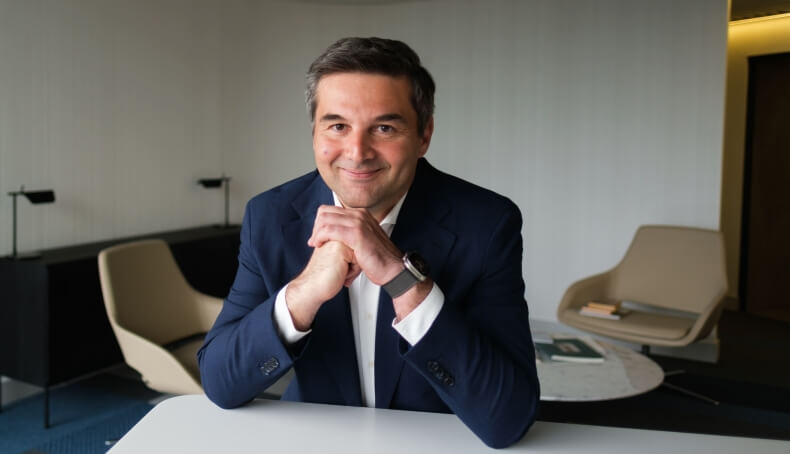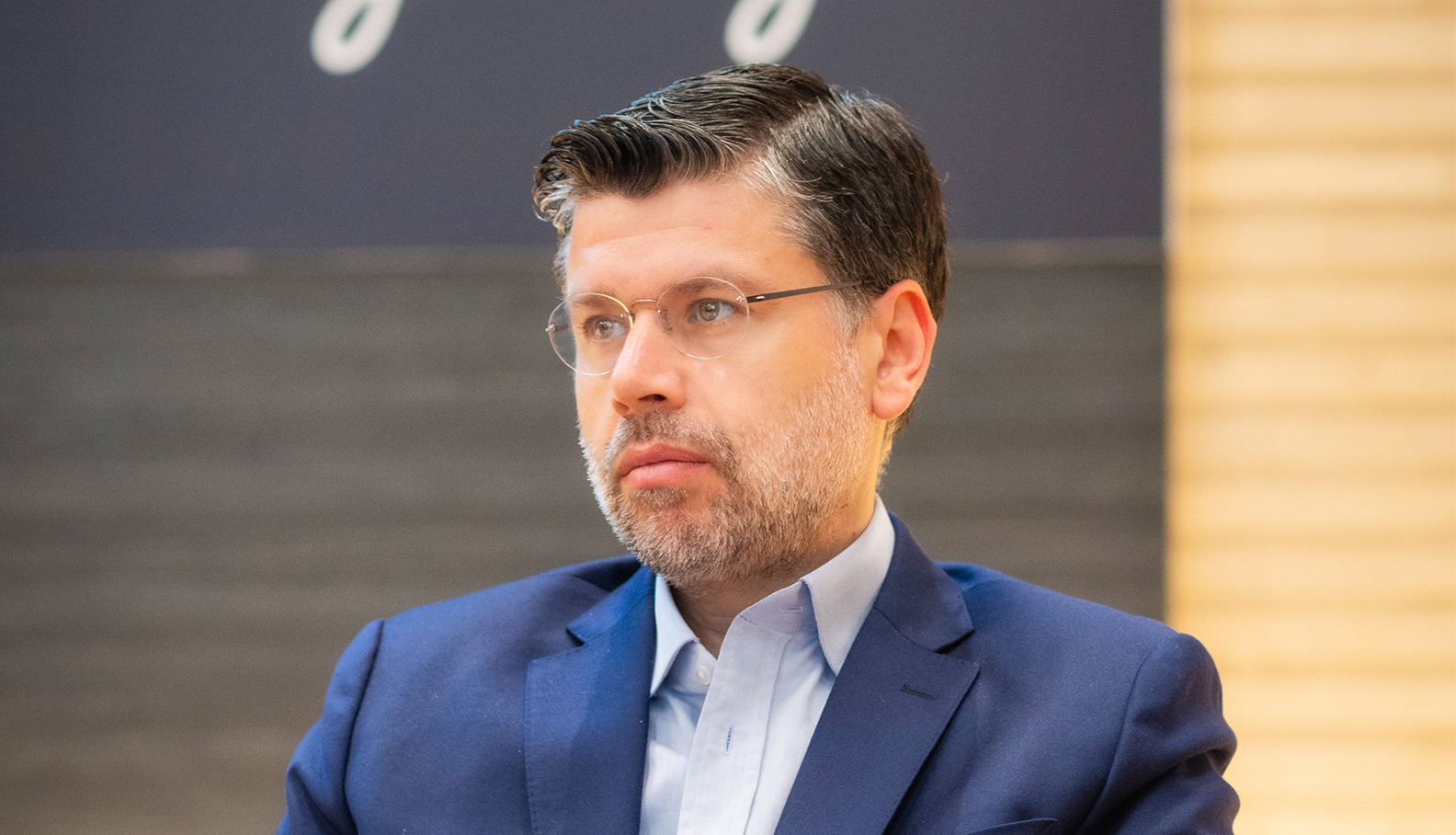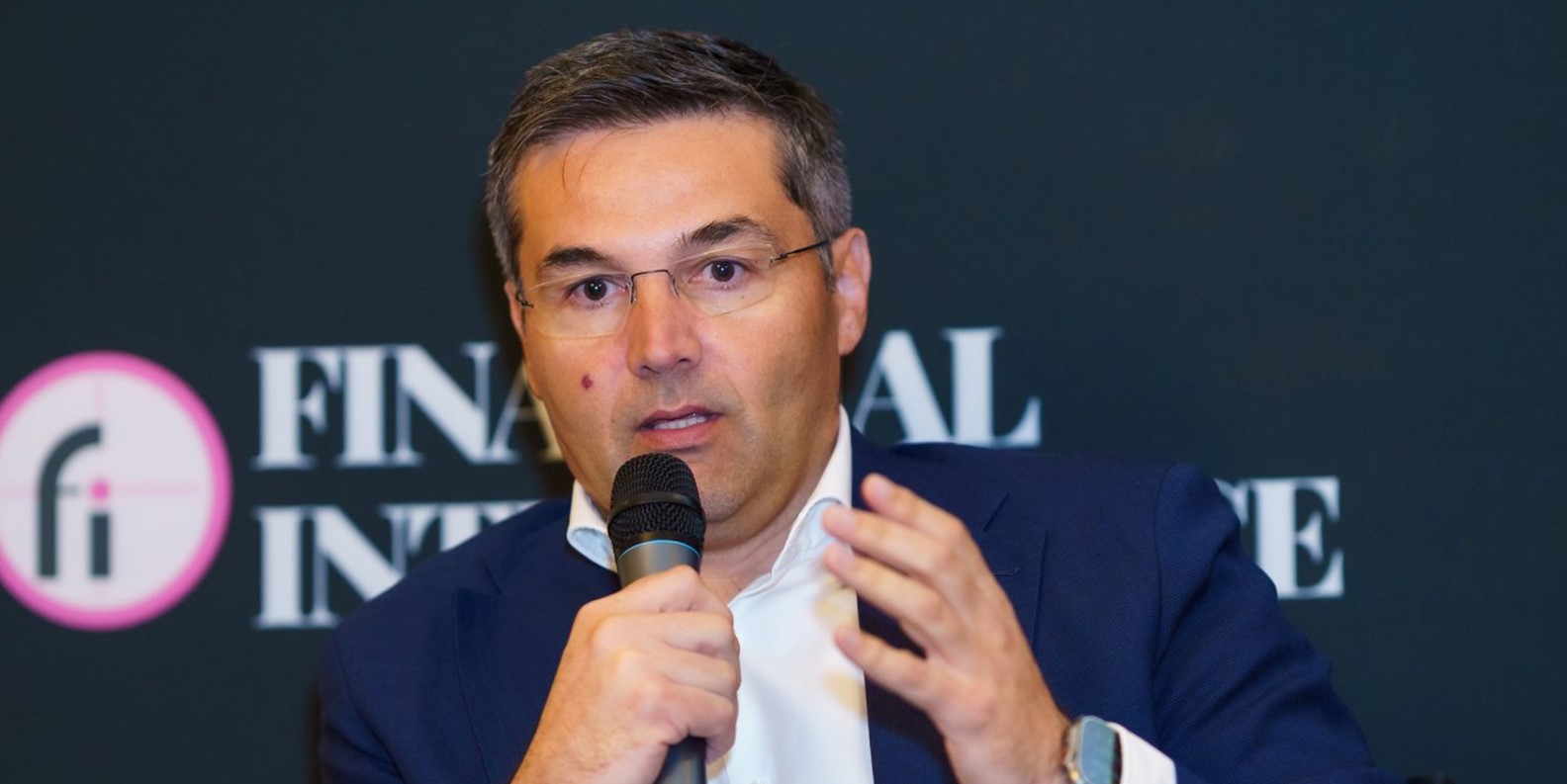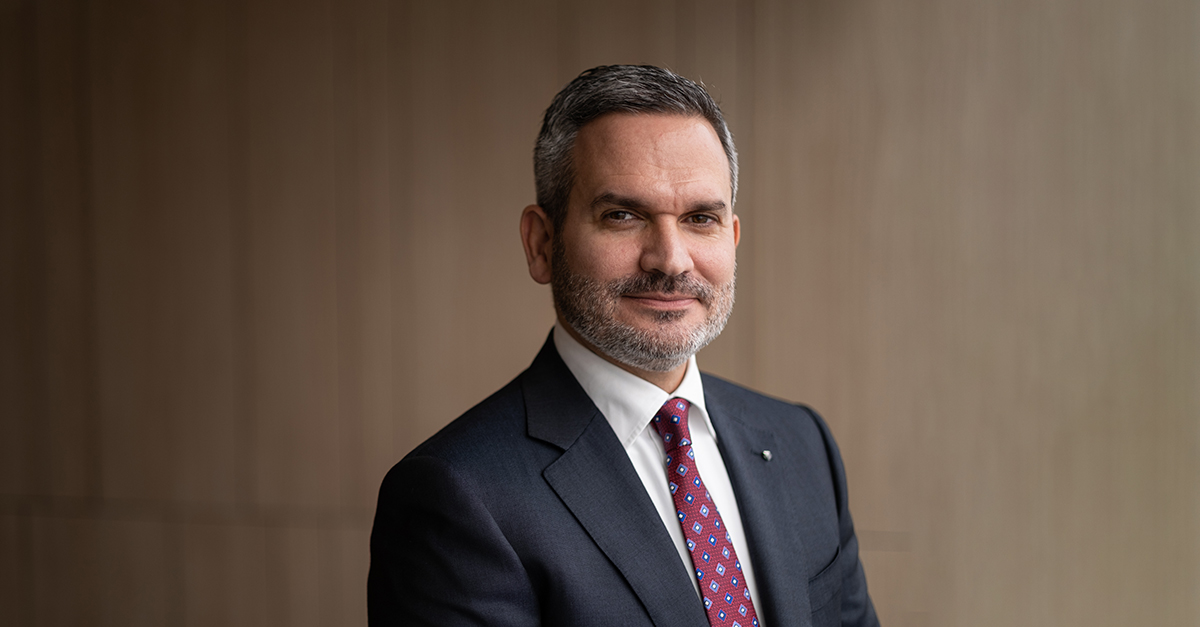Bogdan Pleșuvescu: "We want to increase synergies in BT Group and become leaders in all areas"
24 January 2024 Reading time 7:00 minutes

Bogdan Pleșuvescu, Deputy General Legal Director, Banca Transilvania, gave some exclusive statements to Ziarul Financiar about his mandate in the Republic of Moldova (2018-2023) as CEO of Victoriabank, part of the BT Group. Last week, Victoriabank announced that it had officially closed the acquisition transaction from BCR of BCR Chisinau.
We reprint the full article from ZF, In the 5 years that I led Victoriabank in the Republic of Moldova, I managed to turnaround the bank, the NPL ratio dropped from 33% to 4%, and the accumulated net profit reached almost 115 mil.
Bogdan Pleșuvescu was for 5 years CEO of Victoriabank in the Republic of Moldova, and is now in charge of the subsidiary division of Banca Transilvania (leasing, microfinance, investments, insurance brokerage), which he has to bring to a leading position in their market segment.
For Bogdan Pleșuvescu, who in 2018 was sent to Chisinau by Banca Transilvania to restructure Victoriabank, which had a complicated past and a shaky financial position with non-performing loans of 33%, the closing of the deal to take over BCR Chisinau means the successful completion of a complicated mandate in an extremely difficult banking market and with Moldova's economy now trying to find its way to the European Union.
I became CEO of Victoriabank in 2018, after Banca Transilvania acquired a stake in the bank, my mandate being to ensure the bank's turnaround, i.e. its integration and alignment with Banca Transilvania Group's corporate and business governance model, he said, answering one of ZF's questions.
After 5 years in office (2018-2023), Victoriabank's assets have increased by 51% to €1.1bn (Banca Transilvania has assets of €30bn), deposits have increased by 34%, the loan portfolio has increased by 83% and equity by 98%. Net profit accrued and not distributed in the form of dividends in the period 2019-2023 is approximately €115m.
Another change was the transformation of Victoriabank from a corporate bank - 80% corporate loans in 2018, to a universal bank, where the portfolio structure reached 60% retail and 40% corporate loans in 2023.
But, says Pleșuvescu, the most important achievement is the considerable improvement in the quality of the portfolio, with the non-performing loan ratio showing an exceptional evolution, from 33% in 2018 to 4.4% in 2023. My tenure has also had challenges, mainly generated by the economic environment in Moldova, the pandemic, the war in Ukraine, the energy crisis and high inflation, but together with the team formed there, we have successfully overcome them all.
For Victoriabank, the targets for this year will be the integration of BCR Chisinau, a process that will take 6 months, the further growth of the leasing company in Moldova - BT Leasing Moldova, which is the market leader in the automotive sector, and we are looking at what it means for Moldova to obtain the status of candidate state to the European Union, which could open new opportunities, he added.
The Republic of Moldova has a GDP of €12 billion and one of the lowest GDP per capita in Europe (€5,000), and the potential for economic growth is quite low given the war in Ukraine, geopolitical tensions, and the departure of large numbers of people from the country to other areas.
The banking system in the Republic of Moldova has a low share in GDP, being concentrated around four players, which together control more than 80% of total banking assets and total loans. Victoriabank occupies the third position in the market.
We have built a solid foundation at Victoriabank, we have broken new ground in digital - 80% of transactions are digital or electronic, on the cards, transparency and corporate governance side.
Last year, Bogdan Pleșuvescu, with 23 years of experience in banking, returned to Banca Transilvania as Deputy General Legal Director (Vice-Chairman), executive member of the Management Committee, and from this position he coordinates all subsidiaries of Banca Transilvania Financial Group.
My mandate now at Banca Transilvania is to increase synergies between the subsidiaries and the bank and especially to become leaders in all areas where the BT Group operates. Just as Banca Transilvania is at the top of the banking league table, so should our leasing, microfinance, investment, insurance brokerage, or debt collection companies.
For all these subsidiaries there are plans for sustained growth so that their results will make a significant contribution to the financial results of Banca Transilvania Financial Group.
The results at the end of 2023 show an all-time record contribution of subsidiaries to BT Group profit, he says.
Are there plans to enter other foreign markets?
Geographically, we are at the stage where we are learning from the environments where BT Group is present now, i.e. Italy and the Republic of Moldova, but our main market remains Romania. Now, we want to increase synergies in the business in the markets where we operate, because there is a huge potential for growth that has not been fully explored so far.
Before being sent to Chisinau, Bogdan Pleșuvescu headed the credit recovery and restructuring division of Banca Transilvania, experience he used at Victoriabank.
At Banca Transilvania, the Loan Recovery/Restructuring Division, as it is now, was built in 2013, when I joined BT as Executive Director. It was a time when we were still seeing the effects of the 2008 economic crisis, which had affected many large businesses. Together with the team we adopted turnaround standards appropriate to those businesses and managed to rescue many of the non-performing exposures at that time. Basically, we got clients into a comfortable, manageable zone where they were rescued and were able to scale their business.
Thanks to the accelerated economic growth that also meant the growth of companies' business, Romanian banks managed to recover from the complicated period 2013-2018, when they were flooded with non-performing loans (at its peak, the Romanian banking system had NPLs of 23%). The economic situation has changed in the last two years, economic growth has slowed down, inflation growth has hit everyone, and Romanian companies are starting to feel it through lower sales, worsening financial positions, all of which eventually add up at the banks.
Economic developments are cyclical and we must prepare for times when there may be turbulence, when the number of customers in difficulty increases. At the moment, this is not felt in the market, but in banking we need to be as far forward-looking as possible, and the current economic context is such that we need to be on our guard. Changes in fiscal policy, inflation, the fact that it is an election year and given what is happening at the geo-political level, all of this makes us careful not to be taken by surprise by events. We are close to our clients and, if problems arise, we offer tailor-made restructuring solutions. Basically, we support them to get through financially difficult situations that may arise due to a decrease in the client's or family's income, medical problems, change of employer, and the list goes on, as life is unpredictable, Pleșuvescu said.

Press contact
Other articles
A little more
I just sent an email to you. Confirm your subscription by clicking on the link in the email.













